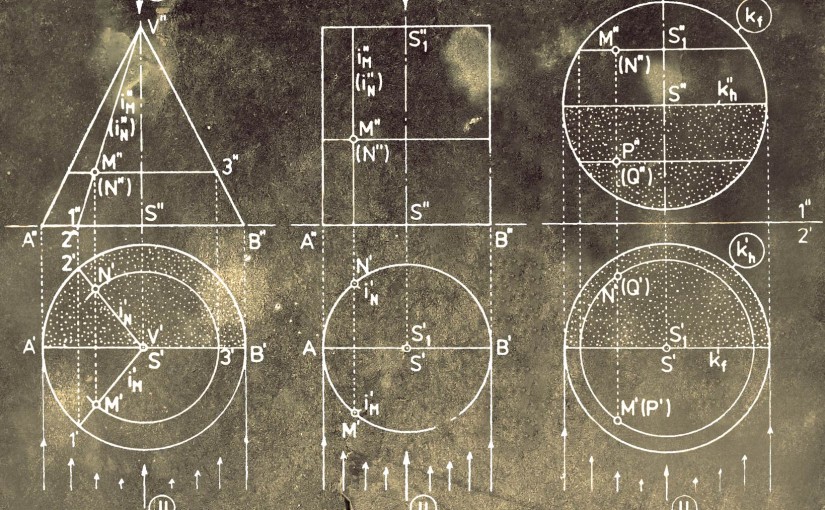What are we to do with Judas? Why was I given merely the stark knowledge that he was innocent, and then not given anything decisively corroborating? This is not all a test of faith, I know, for in my calculus it was part of that grandest plan, which relied on intricate details, an incredibly vast network of what needed to happen, and when, and where. This of which was I allowed to glimpse, if not the smallest part, nowhere near a complete picture. It was one of those insights where you seem to be solving something by your own chemistry, but also where an unseen hand perhaps gives guidance, perhaps more: I saw that the entire “Judas betrayed Christ to his crucifixion” meme was allowed to propagate, throughout the whole world, for 2000 years of history, and why? to be picked up in a very strange way by me? this to nail the very linchpin in the ultimate victory of God vs. Satan, good vs. evil?
Me and my visions had been tossing around the idea of Universalism, that in the end, everyone would be saved—even the Devil. Pay your dues, everyone, and you too will be welcomed into eternal life. And I must admit, I saw the charm in it, that when the Lord died for us all, he was dying so that absolutely everyone would be saved. So as I was circling around this notion in my visions and my mind, as I said, and there came up a certain condition to this idea. A line in John’s Gospel, where our Lord said, “Only one was lost.” He had meant Judas, of course, but it was being repurposed here. Now, even though everybody and their dog were to be saved, Judas was to be lost, into a realm without a Savior, a world without God, at all. It was going to be a horror beyond horrors. The kicker? The visions said he was innocent of any wrong. He was going to volunteer for this.
Now, to anyone who went to Sunday school, they’ll point out that the Bible says differently about those events that led to the crucifixion of our Lord. But I’m not the only one who holds such views like these. Other people have written about their theories on the matter, such as how Judas was made as to be symbol for “the Jews”, who were ultimately, supposedly responsible for the death of Jesus Christ. Or so the Bible says, especially in the Gospel According to John. “Judas” is the same name as “Judah”, the tribe of David and our Lord, and where the designation “Jew” comes from. You should know it just cannot be said that “the Jews” were solely responsible for the death of our Lord, if you put any scholarship to it whatsoever. Pontius Pilate wouldn’t have given a second’s thought about offing someone suspicious of sedition, and the washing the hands of the blood of our Christ was a Jewish gesture, not Roman (he probably didn’t do it). Pilate hated Judea. The Bible is not history, nor does it pretend to be. You should know that.
I look back on the visions I have had, and cannot myself believe what they might mean, since they appear to hold such gravity, and I am just a sinner. Has it truly happened, the scenes that I have seen before my eyes, which held in them the ultimate oracles? Who was I to be an agent in the Plan, so deep in the Powerful Play I would see where God and man intersect? It is easier to believe that I was just viewing some imagination—if not mine, then from some base source, at best. And I wonder if the prophets of old felt something like this. Or perhaps to say as the prophet Amos: “I was neither a prophet nor the son of a prophet, but I was a shepherd, and I also took care of sycamore-fig trees.” [Amos 7:40 NIV] …or am I just a madman, who dreamed of love like no one else I have heard of? what the possibility is when you say, “God is love. Literally.” That that’s actually what is out in infinity!
I would be informed of it, after it had happened—and I figured some of it out—the whole reason the world was led to believe what they did about Judas (the entire “betrayed his Lord for 30 pieces of silver” plotline): what the one phrase, “Only one was lost” would lead me to see. At the time, I was in a hospital room, after the last crazy day of “The Event”, I called it: the end of the War in Heaven. Secret Christians I had been in contact with in my visions told me that Judas was innocent, and in fact, I met the man Judas himself; he seemed a stand up fellow. He was about to volunteer to be the sacrifice that would allow all other creatures to be saved. He, only he was going to have no savior at all. So it came time to enter into his impenetrable “vial”, where that horror was going to be sealed off from the rest of anyone… including God. As he was about to go in, I stared at a patch of space before my eyes, as if there were a subtle glow there. And then *snap*, the space was dead. He was gone.
What I would later prize was that indeed, as Judas was innocent, when we waited for him to go—no one wanted to be the one to push him in, and I think he was still “girding his loins” (for something else, it turned out to be), when that *snap* happened. It wasn’t him. It was the fruition of a plan 2000 years in the making. Because someone did (try to) push him into the horror—Satan, of course. And to commit such a heinous act (I believe he tried to tempt me to do it, to push Judas in, and there was no way I was going to), in this case, it was the proverbial straw that broke the camel’s back: what I saw was the death of Satan. His soul had been hanging from a thread, at that point, and that was the glow in the space I saw. When no one was pushing Judas off the precipice, he couldn’t resist making that injustice happen, to make that atrocity the keystone of all salvation for all the world—he committed to it right there: he committed to it all. And Judas Iscariot never knew. We had all been told different things, at the time.
What does this have to do with anything? I have seen many things in my visions, through the years. Much of it is (very) confusing, and some parts conflicted with other parts, and some parts conflicted with reality; it took me a long time to figure out why things were so chaotic. It would seem that Lucifer in Heaven was using me as something of an index, of the possibilities of what reality it would be that he was going to commit to. I have seen very weird possibilities, like the Roman Empire lasting to the present day; all of humanity caught in wells of pain, to be rescued after a horrific experience; possibilities where Jesus Christ was married; or where no one could make sense of what our Lord was talking about. Where trees were conscious, and there they shared their secret lives with me. Dreams. Nightmares. None of them were real, not until the last month of the Year of the Dragon, 2013. Why did it matter that Lucifer commit this possibility? Very simple, really. It was the only one where the good guys won.
To be fair, we worked harder in this one because we knew this was going to be the one, and Lucifer sort of stretched himself thin, but he thought he could do it; he thought he could do better than God. And those other possibilities? They never existed. All we have of them are the pictures that reflected into our own world, our own “dimension”, or seeming dimension, plane of existence: none of the others have any reality to them. They are relegated to imagination, only. The thing that boggles my mind is that I could be witness to something that important. Yeah, you might say that I’m just a crazy man, talking to angels and spirits of people dead and alive, with his role to play in the War in Heaven—but I can explain everything. All you have to concede me is that line from Hamlet, “There are more things in heaven and earth, Horatio, than are dreamt of in your philosophy.” I can tell you what I’ve discovered, and it can rationally be seen to make sense.
Poor Judas, if this is supposedly true. Who betrayed Christ? The word, “betray”, should be instead, “hand over”. It is translated so in other places in the Bible. One book I read about Judas says that as the writing of the Gospels progress, he is put in more and more of an evil cast. The culmination being John’s Gospel, the last one written, where he is called “son of perdition”. I talked about his possible innocence with a local pastor, and he said that the only degree he could be innocent was like when God hardened the heart of Pharoah, so Moses could bring down the plagues upon Egypt. In other words, not innocent at all. It’s in the Bible, right? So, what now? Well, we know for a scientific fact that the human race wasn’t started by the single pair, Adam and Eve. If you say that not to believe in one part nullifies the whole thing, may I say: you should scrap it. If your faith cannot stand a single dose of reality, let me tell you: your faith is worthless if it be that weak.
What would you do if a prophet came, and told you things that was different from what was written? For it has happened before. The prophet Jeremiah was put under house arrest because he went against the teaching that the House of David would always rule in Jerusalem. It had been written. But times changed. What does it matter to you if Judas is innocent? Will you then be lost, for you would not know what to believe? These things stay solid: love God, with all your heart, and all your action; and love your neighbor as yourself. Judge not, lest ye be judged. Forgive your brother not once, or twice, not seven times, but seventy times seven times. If you’re going to be angry at any group of people, let it be the rich. Not the prostitute, not the addict: the rich. They have the means to defend themselves. Only cowards persecute those weaker than they. When you hear a prophet and want to say, that totally contradicts the Bible! So? Would you try to silence that true prophet who brings the message?
In my vision of Judas, I asked him straight up: “Did you betray Our Lord? Not just hand him over, betray? Or let’s say it in another way, to say it even simpler: was it something he actually wanted you to do?” And he answered, “Yes.” It has been hard for me to believe it, too, you see. I have read the Bible cover to cover ten times. The betrayal of Christ by Judas is one of the main threads of the New Testament. Why exactly, now, am I saying that he’s actually innocent of the charges? I gave it some thought: what would the forces of evil stand to gain if he were actually guilty, and we thought him innocent? The only thing I might think that would do is to shake at one’s faith, that the Bible is not absolutely true, in a fundamental sense. But… we can’t believe it in that anyway, can we? This appears, then, to be a test of faith… but in which direction? If we have matured to the point where we can look to the Bible and yet not believe in six literal days of creation, not stone to death an adulterer, or a child who talks back, etc., etc…. what if in this, our collective faith… we grow up?
One question might settle things: did Judas Iscariot repent? Matthew 27:3-5 says: “Then Judas, which had betrayed him, when he saw that he was condemned, repented himself, and brought again the thirty pieces of silver to the chief priests and elders, saying, I have sinned in that I have betrayed the innocent blood. And they said, What is that to us? see thou to that. And he cast down the pieces of silver in the temple, and departed, and went and hanged himself.” Do we conveniently forget this passage? Are we in truth only listening to tradition, and not seeking what the truth may be? Let’s say I am wrong about the Bible misrepresenting our man Jude (yes, you shorten it like that). The Bible, right there, says he repented. Don’t you see that, when it’s right in front of your face, right there? If not, it’s you Gandhi was talking about when he said, “I like your Christ, I do not like your Christians. Your Christians are so unlike your Christ.”
This is what Jesus Christ railed against. The Pharisees were following their traditions instead of following God. How does one follow God? Love. Even were it true, that Judas betrayed Our Lord and Savior, Jesus Christ, the Bible is telling you that he repented. In thinking that, it may make you feel queazy that someone who did something that wrong could be forgiven, but you forget one of the Lord’s parables. A man with a field hires workers at the beginning of the day and through the remainder of the day, and he pays everyone the same wage. This is our Savior’s forgiveness. And you, who has less on his own head to be forgiven than Judas might have, you may think it unfair, like those longsuffering workers. But you are not the Judge. That is not ours to be! So, what shall we do with Judas? The answer to that question is inevitable, given what salvation is. Like the one whom he supposedly wronged, in the worst way, let us do like that God-man would: let us forgive him.
If you like what’s written here, check out my book, Memoirs from the War in Heaven.




